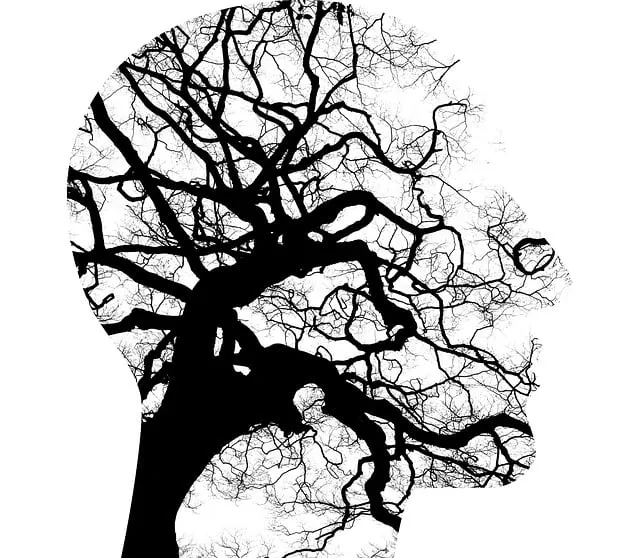Media portrayal of mental health significantly impacts public understanding, either positively or negatively. Inaccurate, simplistic, or exploitative depictions increase stigma and hinder access to support. Organizations like Boulder Kaiser Permanente advocate for authentic, diverse narratives that reflect the complexity of mental health experiences. Their comprehensive initiatives include education programs, risk management planning, and collaborative efforts with media to challenge stereotypes and promote understanding. By integrating evidence-based practices and hosting workshops, they empower both professionals and audiences to address mental health challenges effectively, ultimately enhancing public awareness through their Boulder Kaiser Permanente mental health coverage.
Mental illness representation in media plays a pivotal role in shaping public perception about mental health. This article delves into the profound impact of media portrayals, examining current trends in popular media and highlighting initiatives like Boulder Kaiser Permanente’s commitment to enhanced mental health coverage. We explore strategies for promoting accurate, empathetic depictions and emphasize collaboration between media, healthcare providers, and the community as key drivers of change. By fostering responsible representation, we aim to revolutionize public understanding of mental illness.
- Understanding the Impact of Media Portrayal on Mental Health Perception
- The Current State of Mental Illness Representation in Popular Media
- Boulder Kaiser Permanente's Commitment to Enhanced Mental Health Coverage
- Strategies for Promoting Accurate and Empathetic Mental Health Depictions
- Empowering Change: Collaboration Between Media, Healthcare Providers, and the Community
Understanding the Impact of Media Portrayal on Mental Health Perception

Media portrayal significantly shapes public understanding of mental health, playing a crucial role in either perpetuating or challenging existing perceptions. The way mental illness is depicted in films, television shows, and news articles can influence societal attitudes, potentially impacting support systems and resources available to those living with these conditions. For instance, positive media representations encouraging open dialogue about mental wellness at Boulder Kaiser Permanente mental health coverage could foster a more accepting environment, prompting individuals to seek necessary care.
Conversely, negative or stereotyped portrayals can exacerbate the mental illness stigma reduction efforts, making it harder for affected individuals to come forward and access support. By promoting accurate and empathetic narratives that reflect the diverse experiences of those dealing with mental health challenges, we can uphold mind over matter principles and encourage coping skills development, ultimately leading to improved public understanding and more inclusive healthcare solutions.
The Current State of Mental Illness Representation in Popular Media

The current state of mental illness representation in popular media is a topic of growing concern. Despite increasing awareness and acceptance of mental health issues, many portrayals in films, television, and news media still perpetuate harmful stereotypes and misconceptions. According to research from organizations like Boulder Kaiser Permanente, the lack of accurate and nuanced representations can lead to further stigmatization and hinder individuals from seeking much-needed support.
This imbalance is particularly evident in the media’s approach to mental health conditions, often reducing them to simplistic narratives or exploiting them for dramatic effect. The absence of diverse representations—across various demographics, diagnoses, and recovery journeys—results in a limited understanding of mental illness among the general public. To address this challenge, there is a pressing need for more authentic portrayals that reflect the complexity and diversity of human experiences with mental health issues, while also highlighting successful mental health education programs design and community outreach program implementations. Fostering inner strength development through these representations can contribute to a more compassionate and supportive society.
Boulder Kaiser Permanente's Commitment to Enhanced Mental Health Coverage

Boulder Kaiser Permanente has made a significant commitment to enhancing its mental health coverage, recognizing the critical need for accessible and comprehensive care in this realm. They understand that mental illness is a prevalent issue affecting individuals across all demographics, and their goal is to ensure that quality mental health services are readily available to everyone. Through strategic initiatives, they strive to challenge stigmatized representations of mental health in media and society.
One key aspect of their approach involves the design of Mental Health Education Programs tailored to both patients and healthcare professionals. These programs aim to foster a deeper understanding of various mental health conditions, promote early intervention, and encourage effective coping strategies. Additionally, Boulder Kaiser Permanente prioritizes Risk Management Planning for Mental Health Professionals, ensuring that practitioners are equipped with the necessary tools to navigate complex cases while prioritizing patient safety and well-being. By integrating Mind Over Matter principles into their practices, they empower individuals to take charge of their mental health journeys, fostering resilience and a sense of empowerment.
Strategies for Promoting Accurate and Empathetic Mental Health Depictions

To promote accurate and empathetic mental health depictions in media, a collaborative approach is essential. Organizations like Boulder Kaiser Permanente can play a pivotal role by offering expert guidance and ensuring their mental health coverage aligns with evidence-based practices. This includes supporting professionals who can accurately portray complex emotional healing processes and trauma support services, reflecting the diversity of real-life experiences.
By integrating these insights into creative processes, media producers can challenge stereotypes and foster understanding. Additionally, hosting or sponsoring Stress Management Workshops can empower both creators and audiences to recognize and address mental health challenges more effectively. These initiatives contribute to a nuanced narrative that not only entertains but also educates, fostering an environment where mental well-being is prioritized and supported.
Empowering Change: Collaboration Between Media, Healthcare Providers, and the Community

In the battle against stigma and misinformation surrounding mental illness, collaboration between media, healthcare providers, and the community is a powerful tool for fostering change. By joining forces, these entities can create impactful Public Awareness Campaigns Development that educate the public and challenge stereotypes. Incorporating diverse perspectives ensures that stories of mental wellness are authentically represented, reflecting the lived experiences of individuals across various backgrounds.
For instance, Boulder Kaiser Permanente has initiated a Mental Wellness Podcast Series Production as part of its comprehensive mental health coverage. This collaborative effort not only provides valuable insights into different aspects of mental wellness but also serves as a platform for voices often excluded from mainstream media. Effective Communication Strategies are key to amplifying these narratives, fostering empathy, and encouraging open conversations about mental illness, ultimately leading to a more supportive and inclusive society.
In conclusion, the representation of mental illness in media significantly influences societal perceptions and understanding. The current landscape reveals a need for more accurate and empathetic portrayals. Boulder Kaiser Permanente’s commitment to enhanced mental health coverage is a step towards addressing this challenge. By implementing strategies that promote nuanced storytelling, we can foster a more compassionate society. Collaboration between media outlets, healthcare providers, and the community is essential to drive positive change, ensuring that mental health is depicted with dignity and accuracy, thereby reducing stigma and promoting better support for those in need.






